Last updated on 13th March 2024
In today’s fast-paced work environment, staying organized is essential for maximising productivity and minimising stress.
Whether you’re juggling multiple tasks, managing deadlines, or striving for greater efficiency, having effective organizational skills can make a significant difference.
In this blog post, we will explore 20 practical tips to help you stay organized at work and enhance your overall productivity.
Why Staying Organized at Work Is Important
Organizational skills not only improve your efficiency but can also reduce stress levels.
When you’re organized, you can better prioritise tasks, meet deadlines, and maintain a clear focus on your goals.
Now, let’s explore the strategies that will help you achieve this.
Tips for staying organized at work
1. Create a To-Do List
To kickstart a productive workday, begin by compiling a list of tasks and priorities, a practice as straightforward as jotting down notes with pen and paper. This initial step provides a clear overview of the day’s objectives.
For a more streamlined and digital approach, consider utilising task management tools like Project.co. Project.co not only facilitates the creation of organized task lists but also offers features for task prioritisation and collaboration, enhancing overall task management efficiency.
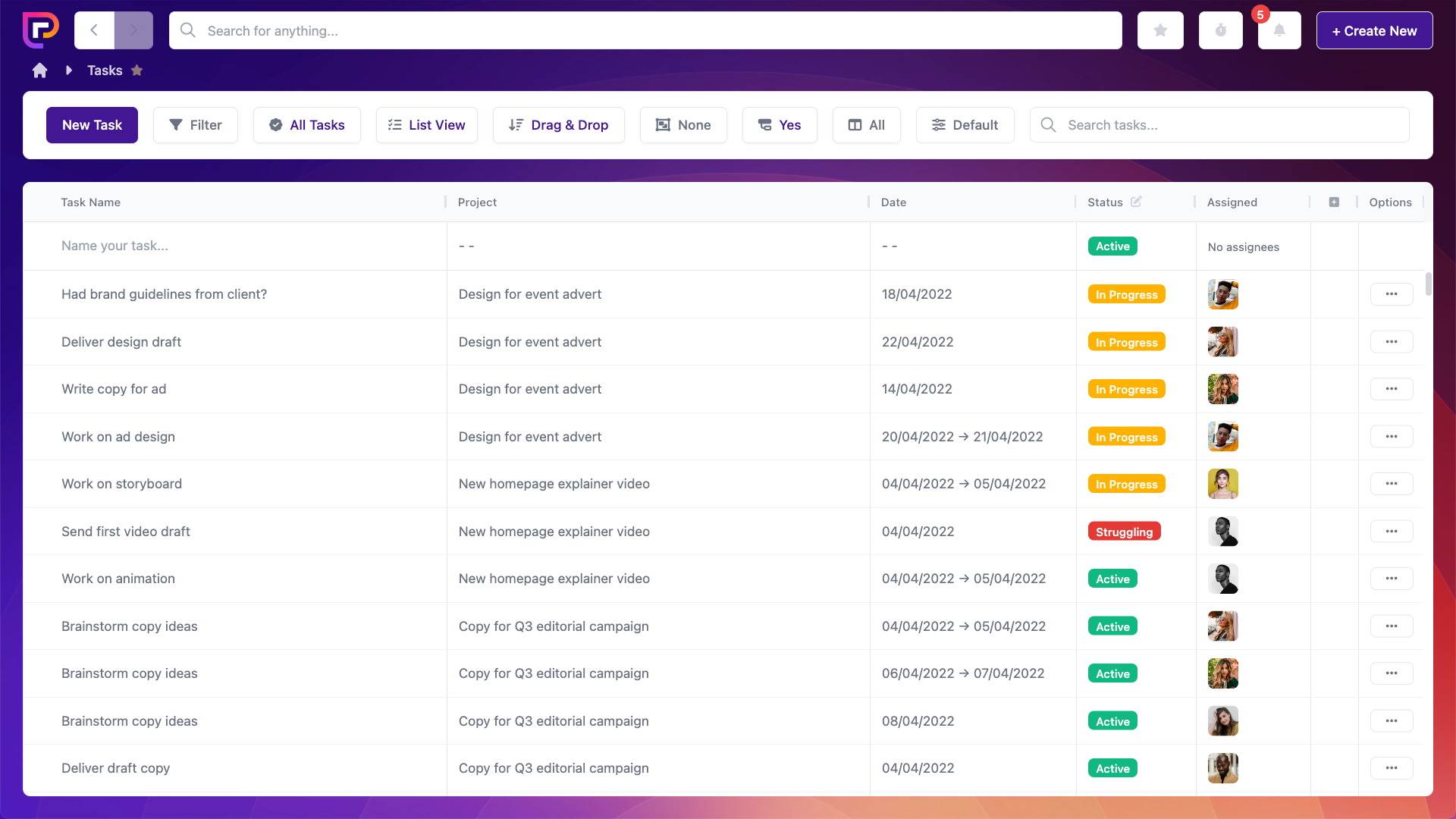
Whether opting for a traditional pen-and-paper method or embracing digital tools, starting the day with a structured task list establishes a solid foundation for focused and purposeful work.
2. Prioritise Tasks:
Assign priority levels to your tasks.
Use the Eisenhower Matrix, which categorises tasks into four quadrants (urgent and important, important but not urgent, urgent but not important, neither urgent nor important), to determine what needs immediate attention and what can wait.
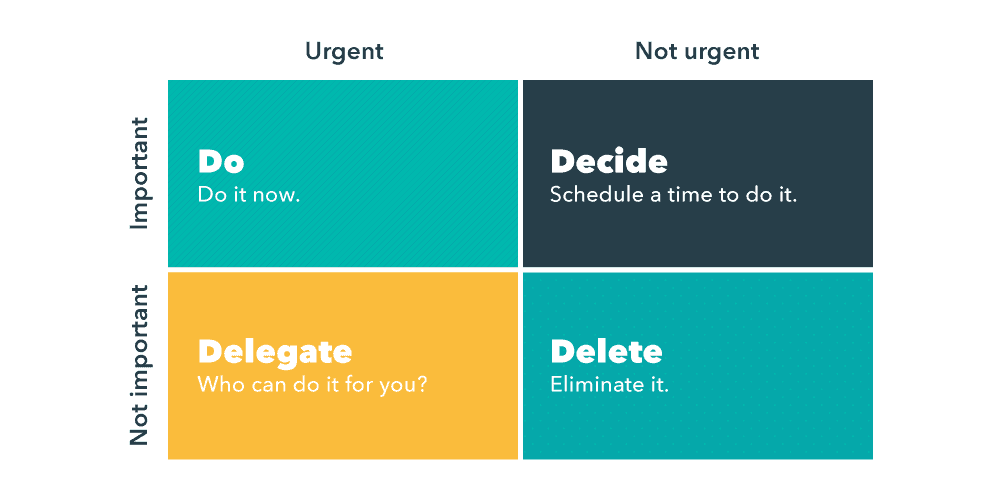
3. Set Clear Goals
Develop SMART (Specific, Measurable, Achievable, Relevant, Time-bound) goals for your projects.
SMART goals provide a clear direction and measurable outcomes, making it easier to stay organized and track progress.
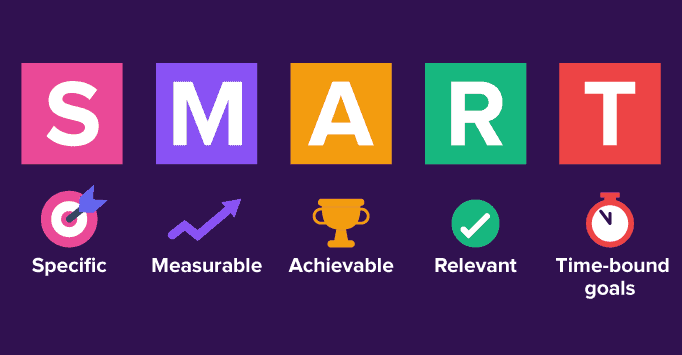
4. Break Tasks into Smaller Steps
When tackling complex projects, break them down into smaller, actionable steps. This approach makes large tasks more manageable and helps prevent overwhelm.
Let’s take the example of a project to create a website. Breaking down this project into smaller steps can help you tackle each aspect systematically.
Here’s an example:
Project: Create a Website
- Define Project Scope:
- List the main features and functionality the website should have.
- Determine the target audience and purpose of the website.
- Research and Planning:
- Explore similar websites for inspiration.
- Decide on the technology stack (e.g., programming language, framework).
- Plan the overall structure and layout of the website.
- Domain and Hosting:
- Choose and register a domain name.
- Select a hosting provider and set up hosting for the website.
- Design:
- Create wireframes to outline the basic structure.
- Design the user interface (UI) and user experience (UX) of the website.
- Get feedback on the design and make necessary revisions.
- Development:
- Set up the development environment.
- Create the basic HTML/CSS structure.
- Implement functionality using the chosen technology stack.
- Test each feature as it is developed.
- Content Creation:
- Write and gather content for each page.
- Optimise images and other media files for the web.
- Ensure that content is engaging and aligns with the website’s goals.
- Testing:
- Conduct thorough testing of the entire website.
- Check for compatibility across different browsers and devices.
- Identify and fix any bugs or issues.
- Launch:
- Deploy the website to the live server.
- Test again to ensure everything works in the live environment.
- Announce the website’s launch to the target audience.
- Post-Launch Tasks:
- Monitor website performance and user feedback.
- Address any post-launch issues promptly.
- Consider future updates and improvements.
By breaking down the project into these smaller steps, you can focus on one aspect at a time, making the overall process more manageable and less overwhelming. This approach also allows for better organization and collaboration if multiple people are involved in the project.
5. Use a Calendar or Planner
By integrating such digital tools into your daily routine, you gain the ability to structure your time with precision.
Schedule meetings with colleagues, mark project deadlines, and highlight important events effortlessly, creating a visual roadmap for your commitments.
The user-friendly interfaces of platforms like Google Calendar or Microsoft Outlook make the process seamless, allowing you to adapt your schedule as priorities shift.
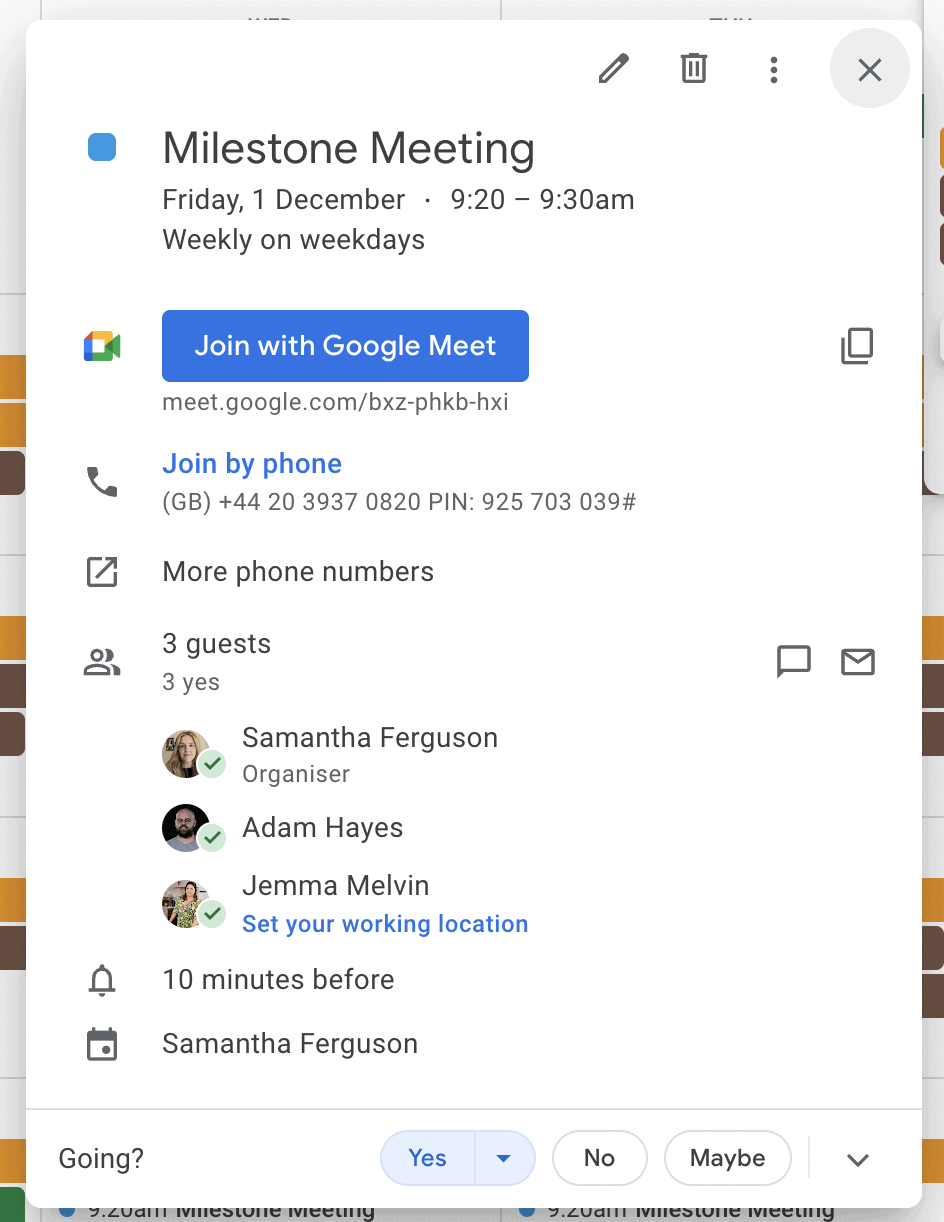
Project.co has a calendar feature that can help you manage your work tasks.
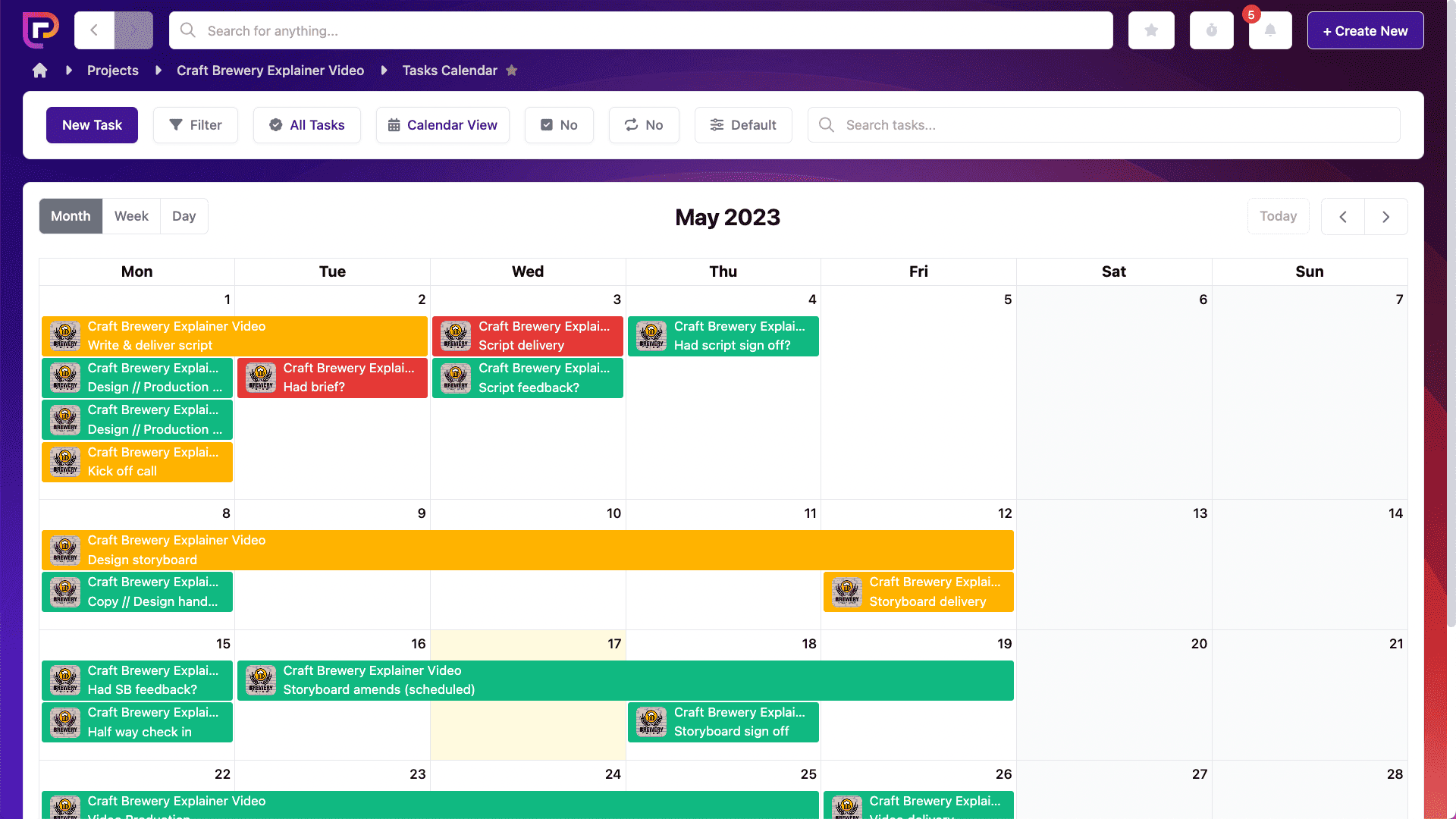
If you’re the manager of a team, you can see all of your team’s tasks on the calendar, which can help when scheduling work.
6. Eliminate Clutter
Maintain an organized workspace by decluttering regularly.
41% of people say that a tidy workspace makes them feel more productive.
Invest in storage solutions, such as shelves, cabinets, and desk organisers, to keep your physical workspace neat and tidy.
7. Minimise Interruptions
Identify common sources of interruptions in your work environment and take steps to minimise them.
Use tools like the “Do Not Disturb” feature on your computer or messaging apps for dedicated work hours.
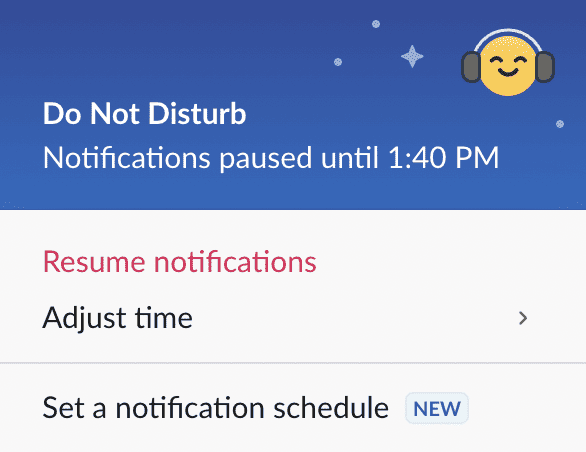
By taking a proactive stance in identifying and addressing potential interruptions, you create a work environment that nurtures productivity.
8. Practice Inbox Zero
Maintain an organized email inbox by regularly archiving or deleting irrelevant emails and organizing important ones into folders.
You could consider using filters and rules to help you automate this process.
We cover everything there is to know about inbox zero in our article: What is inbox zero – and is it possible to get there?. Check it out to see how you can get there!
9. Delegate Tasks
Recognise that you can’t do everything on your own. That’s the first step!
Delegating tasks at work is a fundamental skill that empowers you to distribute responsibilities effectively and foster team collaboration.
By assigning tasks based on team members’ strengths and expertise, you not only alleviate their own workload but also enable individuals to contribute their unique skills to the collective success of the project or organization.
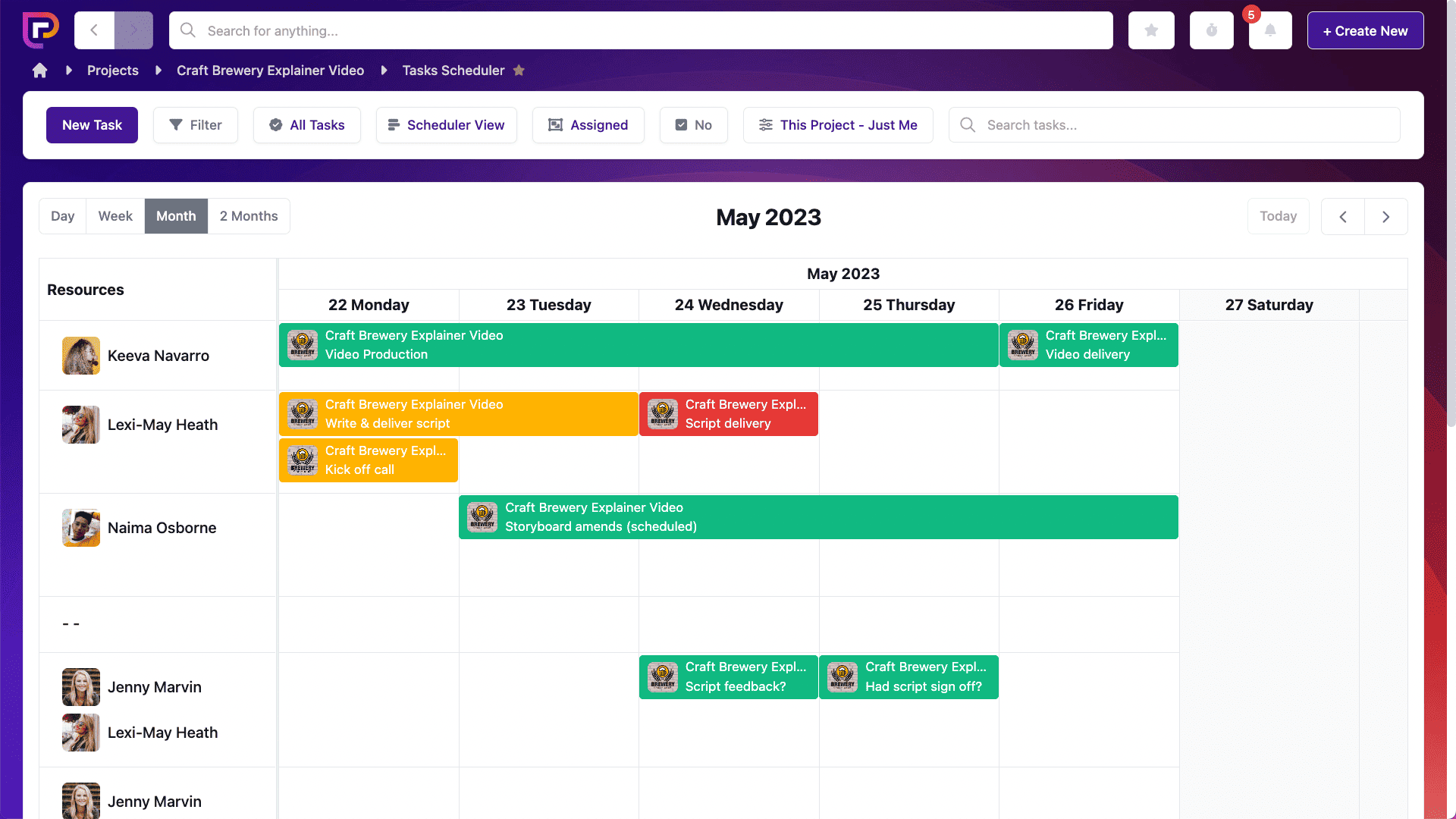
Project.co’s task management feature allows you to drag and drop and allocate certain tasks to team members.
Delegating cultivates a sense of trust among team members, encouraging autonomy and professional growth.
Embracing delegation as a strategic approach not only maximises productivity but also promotes a dynamic and cohesive work environment.
10. Avoid Multitasking
Focus on one task at a time to enhance concentration and productivity.
You can do this by using some of the techniques listed in this post, such as breaking tasks into smaller steps, learning to say no and making a to-do list.
Multitasking often leads to reduced quality of work and increased stress, but remember, the goal is to create an environment that supports sustained focus and productivity.
It may take some time to adjust to these habits, but the benefits of reduced stress and improved task completion can be significant.
11. Establish Routines
Create daily or weekly routines for repetitive tasks. This reduces the mental energy required to make decisions and allows you to complete tasks more efficiently.
By establishing set patterns for your activities, you minimise the need for continuous decision-making, enabling a smoother and more streamlined workflow.
Embracing routines empowers you to navigate your tasks with heightened efficiency, offering a sense of structure and organization that contributes to overall productivity.
12. Take Regular Breaks
Incorporate short breaks into your workday to recharge. These breaks can boost creativity and prevent burnout.
A massive 90% of workers say taking a break makes them feel refreshed and ready to work.
These pauses offer a chance for you to reset, promoting enhanced focus and preventing the onset of burnout.
By stepping away from your work, you create a mental space for ideas to filter, facilitating increased creativity and problem-solving abilities.
13. Use Reminders
Elevate your organization skills by proactively setting reminders for critical deadlines, pivotal meetings, and essential tasks.
Embrace a multifaceted approach by leveraging a range of tools, including digital calendar reminders, alarms, or specialised reminder apps, to keep your commitment to staying on top of your responsibilities.

14. Keep a Notepad Handy
Carry a small notebook or use note-taking apps to capture ideas, reminders, or important information on the go.
This proactive habit serves as a safeguard against the risk of crucial details slipping from your mind.

This organized approach not only prevents the loss of valuable concepts but also acts as a reliable external memory extension, enabling you to revisit your recorded insights later.
15. Learn to Say No
Avoid overcommitting by politely declining tasks or projects that exceed your capacity.
Be realistic about what you can accomplish within a given timeframe.
Learning to say no is a crucial skill for maintaining a healthy work-life balance and ensuring optimal productivity.
Saying no does not imply a lack of dedication; rather, it signifies the ability to prioritise tasks and manage one’s workload effectively.
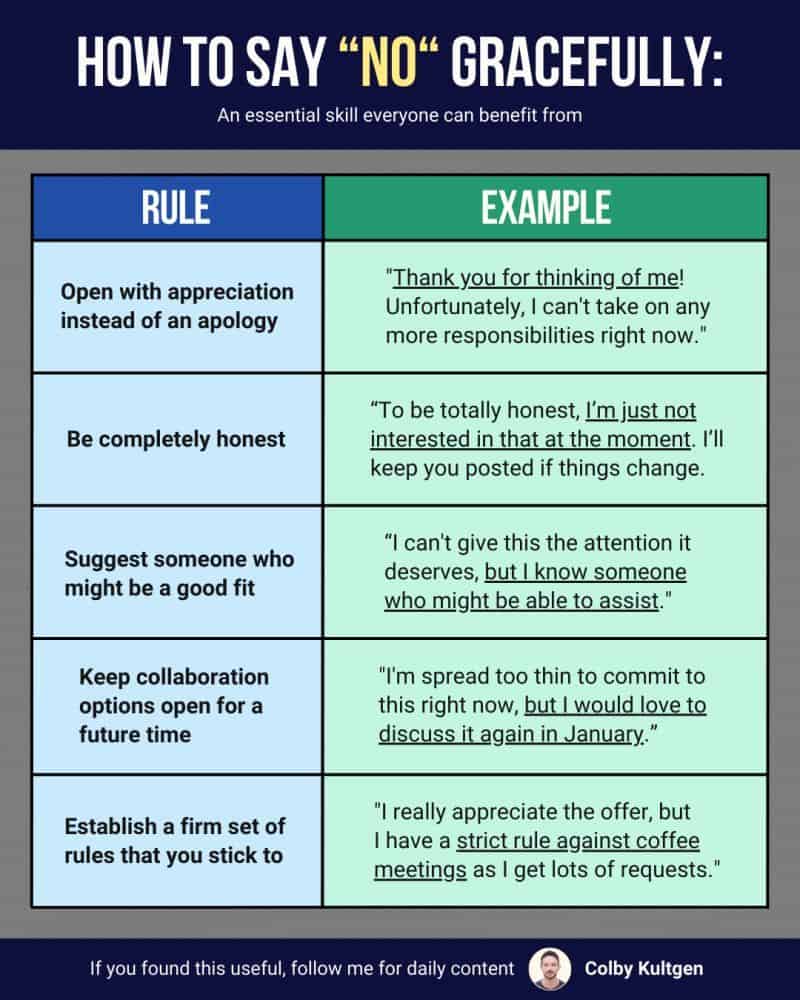
By setting boundaries and being selective about the commitments undertaken, individuals can prevent burnout and maintain focus on key responsibilities.
16. Streamline Communication
Streamlining communication is a pivotal aspect of maintaining a productive work environment.
Selecting efficient communication channels, such as Slack or Microsoft Teams, facilitates seamless collaboration with colleagues.
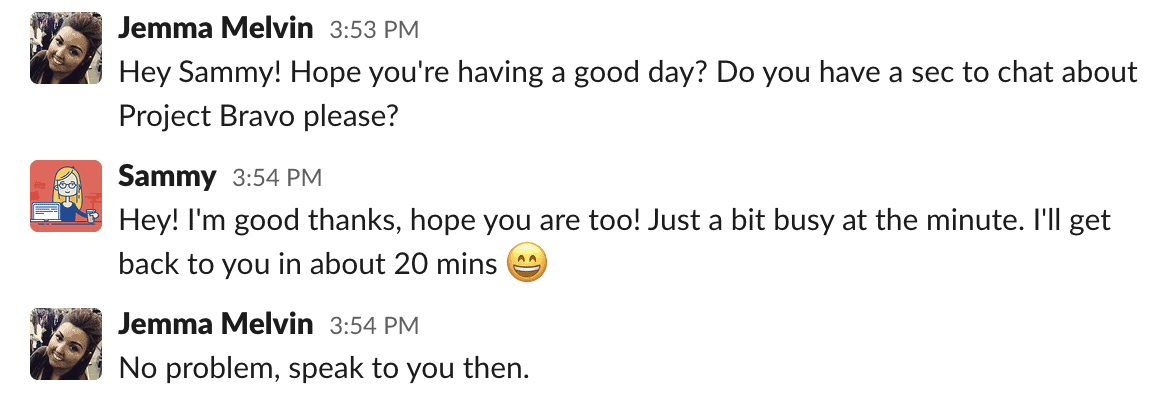
These platforms offer real-time messaging and file-sharing capabilities, enhancing the speed and effectiveness of team interactions.
The ‘Discussion’ thread on Project.co keeps all communication in one place, whether that’s between team members or clients.
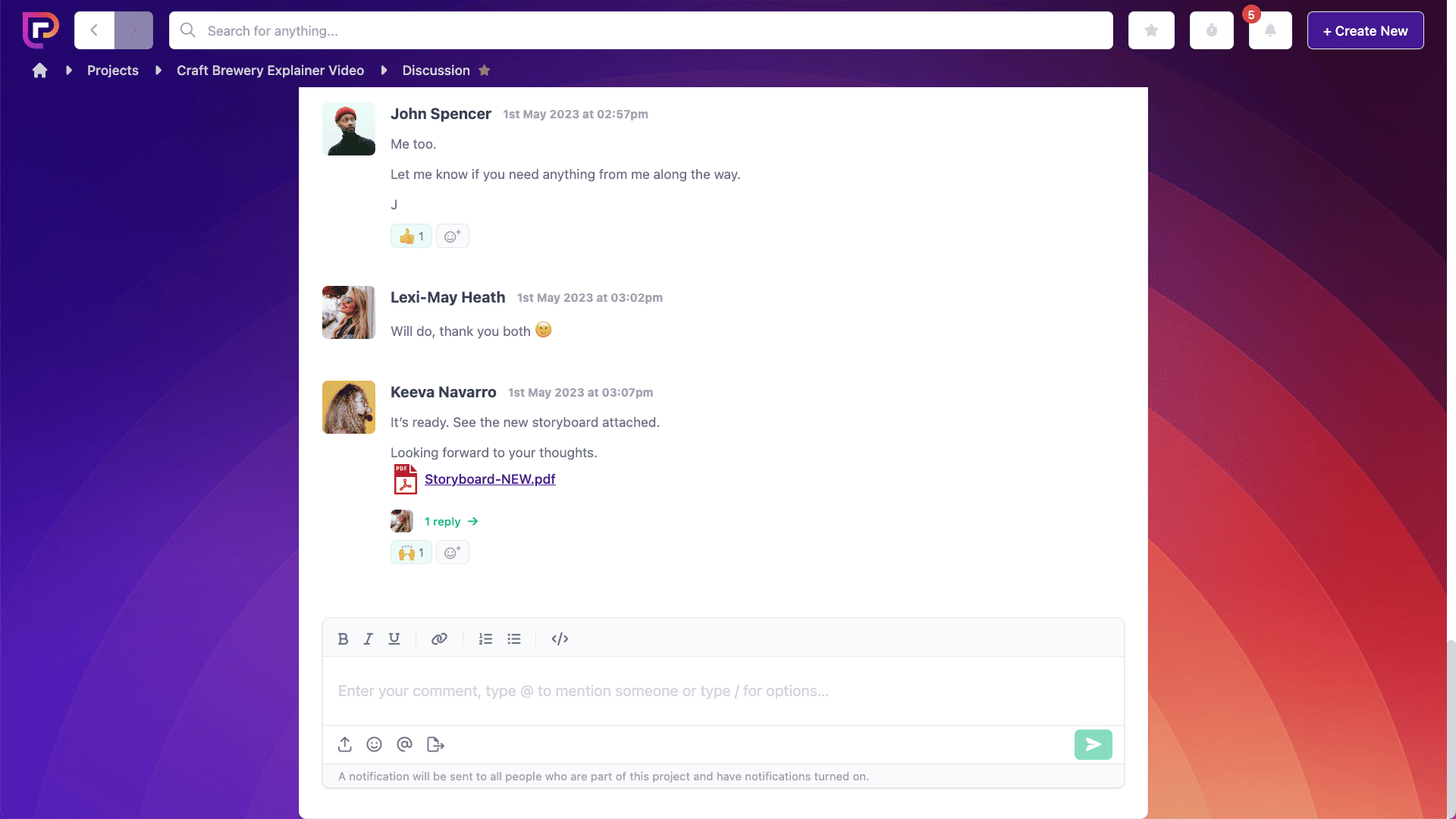
17. Regularly Review Progress
Periodically assess your progress against goals and deadlines. This reflection helps you identify areas for improvement and stay motivated.
Consistent progress reviews not only help you stay on top of your tasks but also provide insights into your work habits and the effectiveness of your strategies.
Adjustments made during these reviews contribute to a more efficient and successful task completion.
These reviews can take place hourly, daily or even weekly, all depending on what type of task you are working on.
18. Develop Time Management Skills
Improve your time management skills by setting realistic deadlines, estimating task durations accurately, and allocating appropriate time for different activities.
Our article 21 of the best time management apps takes a look at some of the best apps that you can use to improve your productivity.
19. Avoid Procrastination
Effectively managing time and boosting productivity involves tackling the challenge of procrastination head-on.
Strategies like the Pomodoro Technique, which involves focused work periods of 25 minutes followed by a 5-minute break, can be implemented to maintain momentum and prevent distractions.
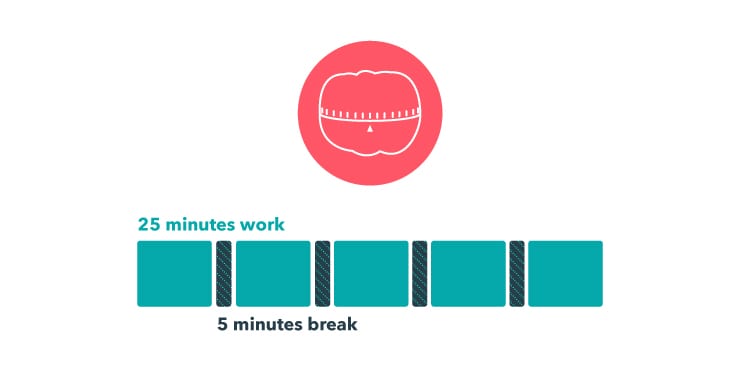
Additionally, setting self-imposed deadlines creates a sense of urgency and accountability, helping individuals stay on track and complete tasks in a timely manner.
By addressing procrastination with a combination of awareness and practical techniques, individuals can cultivate a more proactive and efficient approach to their work.
20. Reflect and Improve
Periodically evaluate your organizational strategies and make adjustments as needed.
Experiment with the tips and techniques in this article and refine your approach based on what works best for you.
Don’t be afraid to seek feedback from colleagues or mentors to improve further.
Conclusion
Mastering organizational skills at work is an ongoing journey that requires dedication and adaptation.
By implementing the tips from this post, you can enhance your productivity, reduce stress, and excel in your work.
Remember, organization is not a one-size-fits-all concept, so customise these strategies to suit your unique work style and preferences.
For more tips on productivity and project management, check out 15 of the Best Productivity Hacks for 2024.


